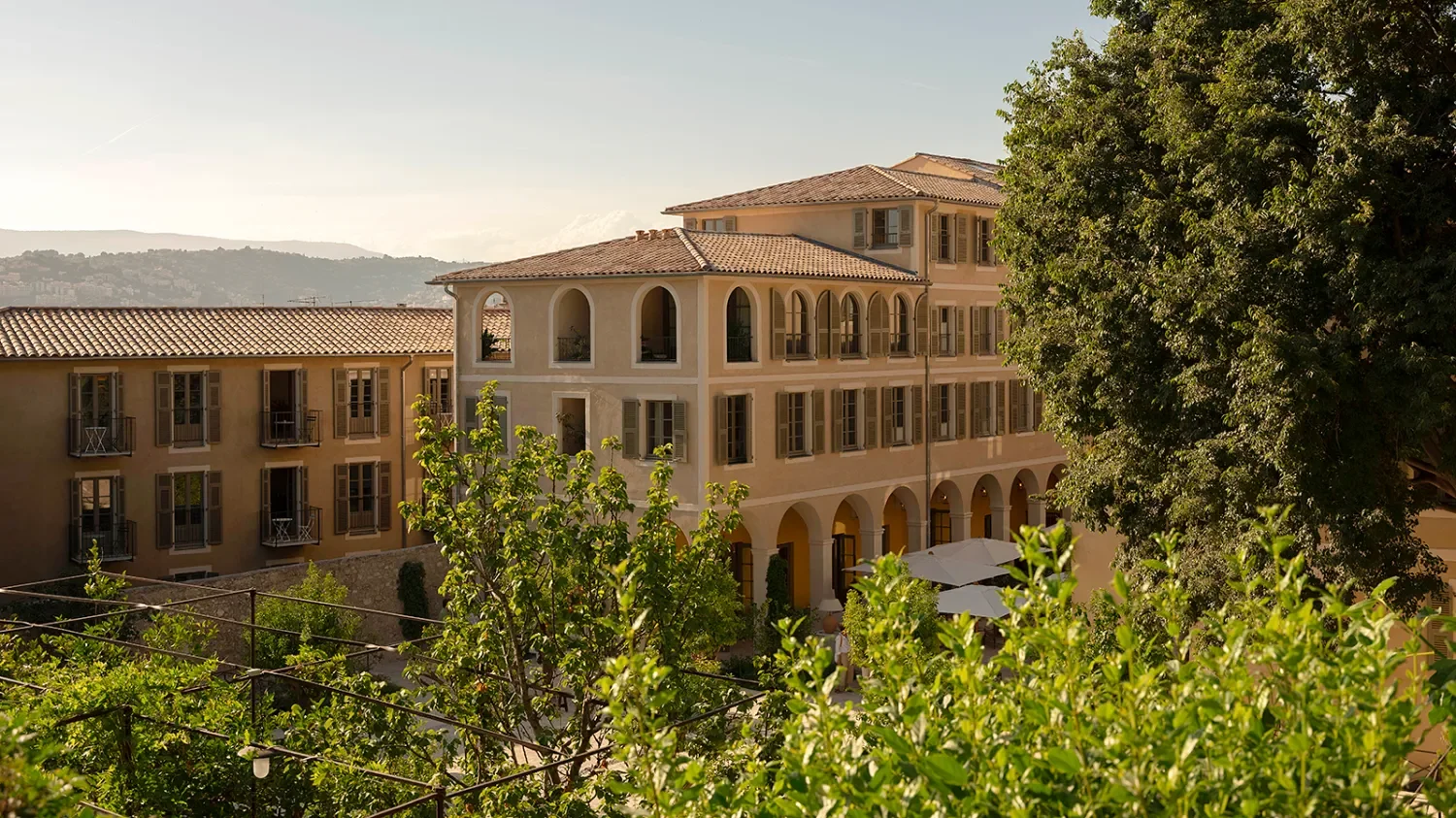Hotel Du Couvent: Nice’s Hidden Gem
This week in Nice, on the Côte d’Azur, I visited Hotel Du Couvent – one of France’s newest luxury hotels, set within a 400-year-old convent that once served as a nunnery.
Image: The Times
Perched high on a steep hill, the property is something of a hidden gem within Nice’s Old Town. Passing through weathered stone gates feels like stepping into another world — a sunlit square shaded by ancient lemon trees, the crunch of gravel underfoot, the rhythm of birdsong. Time slows here.
And immediately, it becomes clear: this is not your average hotel.
More Pilgrimage Than Check-In
On first impression, nothing about Hotel Du Couvent signals “hotel” at all – and that’s precisely the point.
There’s no reception desk, no formal check-in, no scripted welcome. Just a scattering of fellow adventurers who, like me, had heard whispers of this place and come to investigate. Pilgrimage might sound like a lofty word, but it’s apt: this is a space where transformation, not transaction, takes place.
I wasn’t staying overnight (the €1,000-per-night rates take care of that), but instead of feeling like an outsider, I felt like an honoured guest. I spent the afternoon wandering through gardens and courtyards, discovering hidden “rooms” and venues — three restaurants, several bars – before pausing in the grand square for a simple salad and a refreshment. The waiter proudly explained that the leaves were hand-picked daily from the hilltop gardens.
Images: Hotel Du Couvent
Spaces for Body and Spirit
Encouraged by the staff, I continued exploring. Down a cobblestoned path and through a tropical garden I found a Movement Studio – an ancient take on the hotel gym, stripped of machines and mirrors, an empty space dedicated simply to movement in whatever form you choose.
Further on lay Les Thermes, a mystical spa centred on a Roman-style bath house, its waters warmed to 38 degrees. Nice’s history is steeped in Roman influence – the city itself was originally founded by the Greeks as Nikaia, named after Nike, the goddess of victory.
But perhaps the most fascinating discovery was Le Herboristerie. Here, a French woman named Karin tends what feels like a library of herbs — all grown in the convent gardens — blended into ancient potions and teas. She explained that the nuns who lived here for centuries were deeply skilled in preventative medicine, using natural remedies long before modern science caught up.
“In today’s fast-paced, fractured world, people are craving connection with something real,” Karin told me. “Travel, done well, offers that — a meaningful connection to people and a place.”
A Different Kind of Luxury
Despite its rates, Hotel Du Couvent does not radiate “bling” or “French chic.” Instead, every detail – the stonework, the furniture, even the menus – feels hand-crafted and authentic. More “real” than “luxurious.”
The French might call it démocratique: accessible, grounded, designed to put guests at ease. In Australia, we might simply call it “no bullshit” – service and pride executed without fuss.
The staff embody this ethos. They move fluidly across the property, clearly well-trained, yet they feel like real people, not service robots. They’re empowered to chat, to share stories, to host. More facilitators than attendants, they act as agents of place rather than agents of commerce.
Images: Hotel Du Couvent
Why It Matters
In a world where hotels often chase Instagram perfection or commercial efficiency, Hotel Du Couvent offers something rarer: authenticity. It proves that luxury doesn’t need to shout – it can whisper, and still transform.
Uncommercial (hors commerce) perhaps, but undeniably relevant. We live in uncertain, challenging times. And perhaps if there were more hotels like this, the act of travel itself would feel more meaningful, more human.







